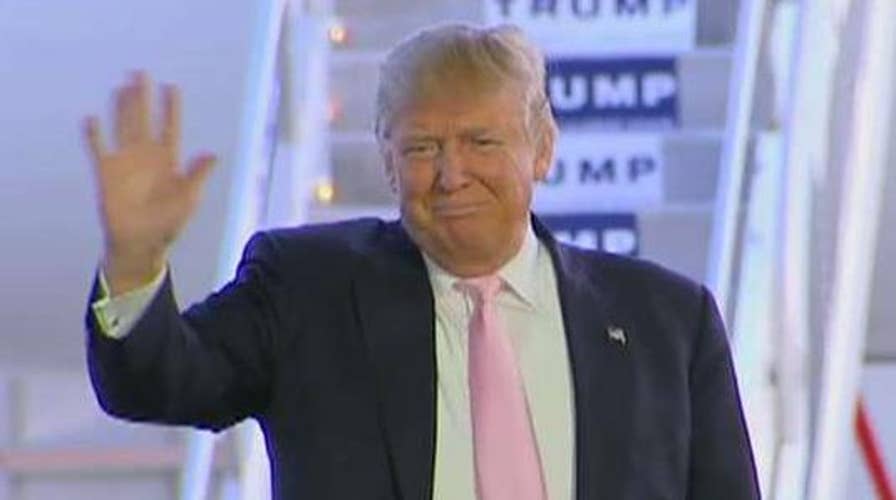Anti-Trump conservatives to meet in Washington
Hans Noel, author of 'The Party Decides', shares his insight
Another day, another dire warning about Donald Trump’s growing power. This time, The Washington Post editorial board declared Republicans must “block” his election, warning he “presents a threat to American democracy.”
This isn’t the first time, however, that the editorial pages and the pundits have tripped the alarms about an outsider Republican candidate.
The warnings about Trump are in some ways a throwback to what was said and written about Ronald Reagan when he ran against Jimmy Carter in 1980.
Then, the former California governor was portrayed as a fascist and compared to Hitler. He was accused of stoking nationalistic fears, and offering simplistic solutions to big issues. Journalists also pointed to Reagan’s political affiliation with the Democrats for a major part of his life.
Sound familiar?
In July of 1980, Anthony Lewis of the New York Times wrote that Reagan was “bellicose” and “simple-minded,” explaining that as “Reagan has become more deliberate in his remarks on foreign affairs over recent months, that quality has remained -- a sense that he is somehow not connected with the world as it is.”
In Jay Perkins’ coverage for the Associated Press of the 1980 election, he wrote that Reagan’s problem is “not a loose lip but the simple answer. In Mr. Reagan's case it appears to arise from a romanticized image of America. … Translating nostalgia into policy is far more difficult, and dangerous, than he lets on.”
The warnings were more heated from the lawmakers and pundits.
As the American Enterprise Institute’s Steven Hayward recalled in a 2011 piece, Democratic then-Rep. William Clay alleged Reagan was “trying to replace the Bill of Rights with fascist precepts lifted verbatim from Mein Kampf.”
He added, “Harry Stein (later a conservative convert) wrote in Esquire that the voters who supported Reagan were like the ‘good Germans’ in ‘Hitler’s Germany.’”
Meanwhile, as Trump has faced accusations for shifting positions, Reagan faced many of the same complications in his coverage.
Lou Cannon of the Washington Post wrote in the fall of 1980: “Throughout the fall campaign, this Reagan has muted much of his conservative rhetoric in an effort to reposition himself as a born-again New Dealer sympathetic to the plight of blue-collar workers pinched by unemployment and inflation.”
Cannon went on to write in-depth about the various “versions” of Reagan that appeared, claiming he shifted core values in virtually every election he ran. “This strategy does not sit particularly well with either the handful of Republicans on the party's liberal wing nor with the ultraconservatives who have been largely shut out from key campaign positions.”
Reagan, like Trump, also took heat for his simple answers to questions about complex topics.
In late spring of 1980, Gerald C. Lubenow of Newsweek wrote that Reagan’s appeal to a wide range of voters came from his ability to churn out those answers. Regarding criticisms of Reagan’s substance, Lubenow wrote, “on occasion, such simplicities have gotten Reagan into trouble and generated the impression that his pronouncements are, at best, poorly researched.”
The central narrative on Reagan, though, focused on his nationalistic rhetoric. Indeed, he pushed for voters to rally behind the United States as it prepared to confront the Soviet Union.
President Jimmy Carter’s campaign quickly seized an opportunity to question Reagan’s competence on foreign policy when Reagan publicly supported Taiwan, a statement that had the potential of enflaming Sino-American relations in the event of his election.
In the 2016 cycle, many pundits and Republican rivals also cite Trump’s murky answers to complex issues. They say Trump lacks substance in his answers, and flip-flops – pointing, for instance, to his once-pro-choice stance that has since changed to pro-life.
Opponents say Trump’s changes in position are indicative of how he lacks trustworthiness as a candidate. They say Trump’s rhetoric does damage to the Republican brand, arguing it alienates large groups of people.
Democratic strategist Mary Anne Marsh said Thursday there are plenty of parallels between Reagan and Trump as candidates – in that, neither was taken seriously at first.
“The common denominator is that they were both vastly underestimated,” she said. “… With that said, let’s remember that Ronald Reagan won two elections – he was a two-term president. What will happen with Trump remains to be seen.”
Critics suggest the problems with Trump are far more consequential than past concerns about Reagan.
As the Post editorial board wrote:
“Mr. Trump resembles other strongmen throughout history who have achieved power by manipulating democratic processes. Their playbook includes a casual embrace of violence; a willingness to wield government powers against personal enemies; contempt for a free press; demonization of anyone who is not white and Christian; intimations of dark conspiracies; and the propagation of sweeping, ugly lies.”
FoxNews.com's Daniel Jativa contributed to this report.





